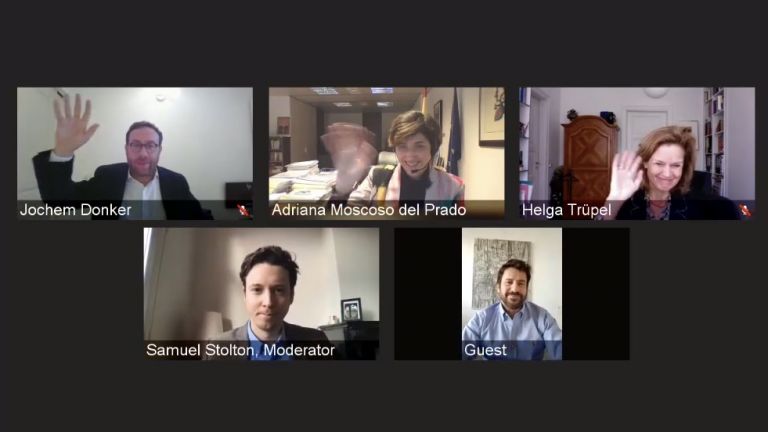The new Copyright legislation: Making the most for next generation authors

On 25 November, the SAA organised the event “The new Copyright legislation: Making the most for next generation authors” with the participation of filmmakers, policymakers and experts to discuss the authors’ right to remuneration in the new EU legislation.
The recording can be watched here
Read the Take-Aways from the event
The past few months have been challenging, to say the least, to citizens across Europe. In these dark times, culture has played a double-edged role. On the one hand, as people were forced to stay home for weeks, they turned to films, series, and music to brighten their days. On the other, the cultural sector has suffered the full impact of the pandemic: cinemas were closed, shootings were halted, festivals were postponed or moved online… Directors, screenwriters and actors have seen their incomes decrease substantially. At the same time, much of their content has been widely consumed on VOD platforms during the lockdown and they have received little to no compensation.
With all this in mind, the SAA put together a top-level panel to address this issue. To begin with, we played a short video with testimonials from some of our patrons. Slovenian director Urša Menart emphasised the difficulties faced by directors during the pandemic, since shooting essentially stopped. On top of this, filmmakers in her country are suffering the consequences of a sudden cut in government funding to the industry in recent months. Additionally, while Slovenian content is quite successful on VOD platforms, its authors are receiving no remuneration for it. Nevertheless, she stressed that the public is hungry for European content they can relate to. Famous French director Julie Bertuccelli referred to her own experience of a film due to be shot this winter and put on hold, which leaves her with no visibility on her future. She added that, without the money from the royalties, talented early career filmmakers will probably leave the sector, since they have no regular source of incomes between projects. The pandemic has only made this more likely. British director Roger Michell called attention to the fact that the lack of fair remuneration for authors is not a new VOD-related issue since he barely received anything from his hugely successful Notting Hill. He also called on policymakers to see culture not just as a key component of national identities but also as the economic powerhouse it is.
From a more policy-oriented perspective, former MEP Helga Trüpel explained the effects of the 2019 EU Copyright Directive: Article 17 of the Copyright Directive requires platforms to sign licensing agreements with rightholders and Article 18 mandates fair remuneration for authors. “Now is the time for implementation and enforcement”, she stressed. On her part, Adriana Moscoso from the Spanish Ministry of Culture shared an overview of the Spanish model, which prescribes mandatory remuneration to authors canalised by collective management organisations. Importantly, she added that this model had not hampered the market, as Spanish authors had remained very creative and active. In contrast, Jochem Donker, from our Dutch member LIRA, explained how the situation had been much worse for screenwriters in The Netherlands, since broadcasters and cable operators had managed to bypass them for a few years, dealing only with the redistribution of revenues to producers. This has been remedied since the 2015 Copyright Law, and the government now plans an update that will mandate collectively managed remuneration to authors for VOD platforms.
Our final guest was Alexis Georgoulis, a Greek MEP and film actor who updated us on Parliament’s efforts to include culture as a key aspect of the upcoming budget of the EU. The Cultural Creators Friendship Group (CCFG) in the European Parliament, of which he is a member, has supported this call while also urging the Commission to ensure the Copyright Directive is thoroughly implemented to the benefit of creators. This group was kind enough to send us a supportive video summarising their demands to the Commission and Member States on Article 18 of the Copyright Directive.
What struck me most about this event is how big this problem has become. Even celebrated film directors fail to receive a fair share of the massive revenue their works generated. Luckily, the sector is coming together to defend their rights across Europe. Events such as this one prove that there is a growing political agreement that this issue needs to be solved soon and in a fair way. The Copyright Directive is the first step in the right direction.
@josearroyonieto, intern at the SAA
